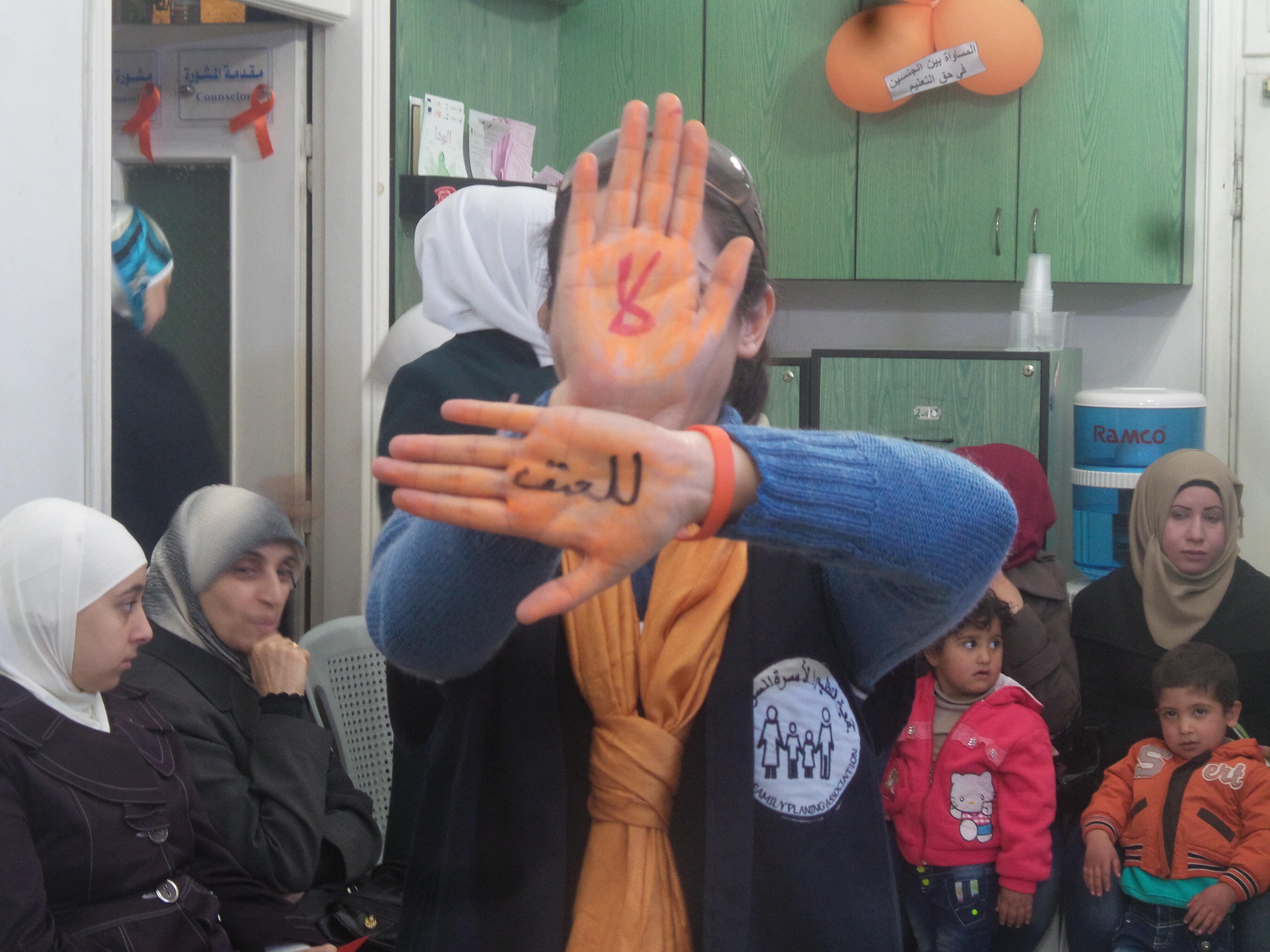Damascus, Syria -- One look at Amal*, 46, and you can tell that she is feeling miserable inside. The red and blue bruises on her face provide a glimpse of her battered psychological state. She feels lost, vulnerable and hopeless. “I do not know if I have any rights or even access to support of any kind. All I know is that I need help” says Amal, a mother of five. Amal was admitted to Al-Halbouni Health clinic for medical consultation, after she had been severely beaten by her husband.
“I welcomed Amal and tried to reassure her that she is not alone, we are here to listen and support her in every way medically, psychologically and even legally”, says the Legal Consultant, at Al-Halbouni clinic while recalling her first meeting with Amal.
Supported by UNFPA Syria, AL-Halbouni clinic is one of the Syrian Family Planning Association (SFPA) clinics, mandated to provide services such as medical examination, social services and legal counseling for survivors of Gender-Based Violence (GBV).
Thanks to the integrated package of support services provided by Al- Halbouni clinic, Amal feels somewhat more motivated to deal with her emotional trauma. “I feel more aware of my rights now than I ever did before and how to access support in times of need”, Amal says.
In line with the SFPA approach to involve men in search of durable solutions to issues of GBV, Amal’s husband was contacted by the mobile team of SFPA and offered psycho-social consultation and services. “The crisis we face is too harsh and I was not able to control myself”, he commented.
He was made aware of the protection rights available to women in the event of being dealt with violently at home, and counseled about the need for the couple to support each other and derive mutual strength from being together.
This is the story of Amal, but it is also the story of an estimated 46,500 women who may be exposed to SGBV including rape as a result of the ongoing violence in Syria.
Reunified with her family and husband, Amal now visits the clinic regularly to improve her psychological well-being as well as skills that can help enhance her livelihood prospects through participation in vocational training courses organized by SFPA.
Three months after accessing various services at the SFPA-run Al Halbouni clinic, Amal feels alive and rejuvenated. She reports that relations with her husband have never been better and that her husband’s violent behavior is now a thing of the past. Amal, whose name means ‘hope’ in Arabic, lives by two hopes: that crisis in Syria ends soon and the ties with her family and husband continue to be optimal.
AL-Halbouni Clinic is one of the three centers in Damascus and other seven centers around Syria that are supported by UNFPA through deployment of staff, and the provision of Reproductive Health services and commodities to enable women to lead a healthy life.


